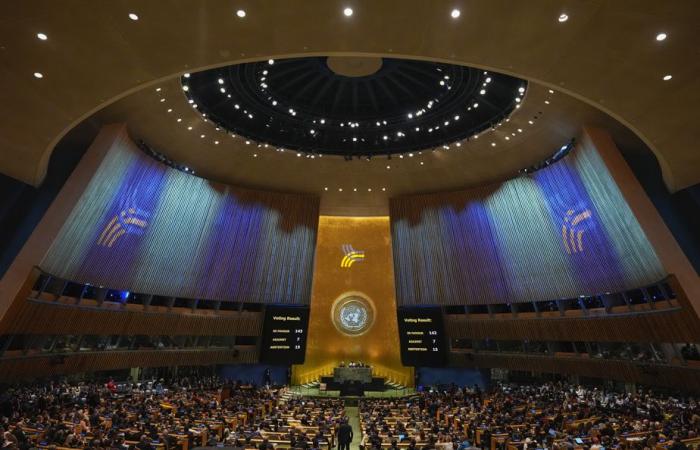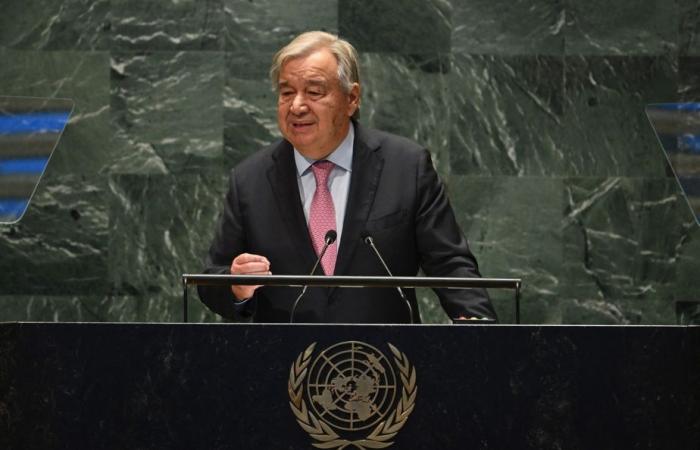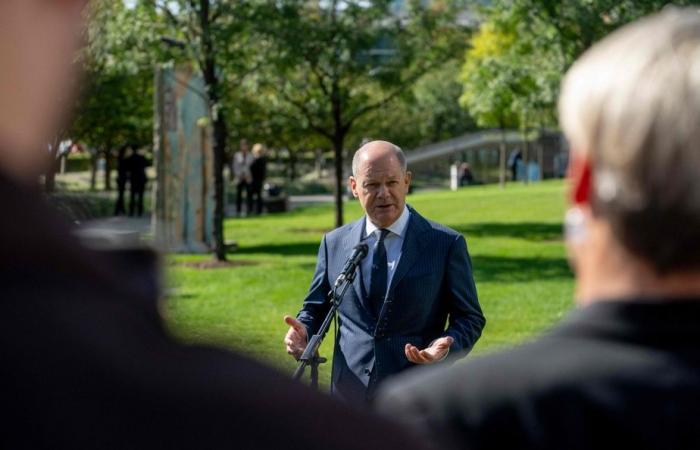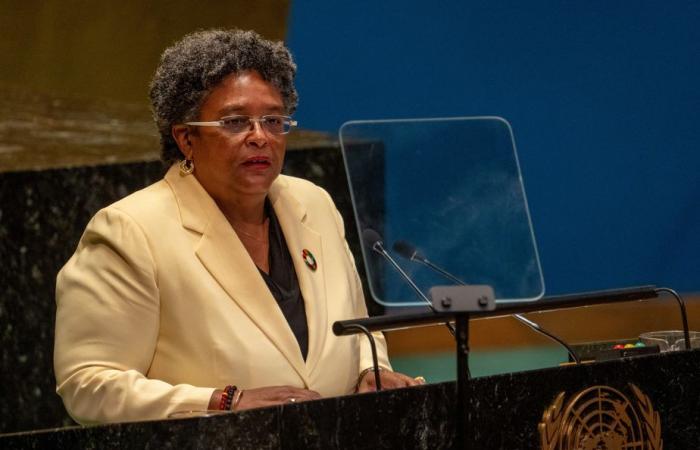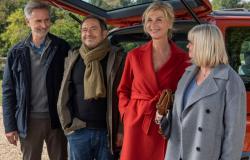(United Nations) UN member states pledged Sunday to design “a better future” for humanity shaken by wars, poverty and global warming, despite opposition from a handful of countries, including Russia, to the adoption of this “Pact for the Future.”
Published at 10:14 a.m.
Updated at 1:15 p.m.
Amélie BOTTOLLIER-DEPOIS
Agence France-Presse
In 2021, UN Secretary-General António Guterres launched the idea of this “Summit of the Future”, presented as a “unique opportunity” to change the course of human history.
“We have opened the door, and now it is up to all of us to step through it, because it is not just about agreement, it is about action. And today, I challenge you to take action,” he said on Sunday at the podium after the adoption.
Before the summit, the head of the UN had let a certain frustration show over the ambition of the text, which was supposed to allow for the strengthening of “obsolete” international institutions, incapable of responding effectively to today’s threats.
PHOTO ANGELA WEISS, AGENCE FRANCE-PRESSE
António Guterres, Secretary-General of the UN
After tough negotiations until the last moment, he had prepared several versions of his speech in case of failure of this summit which opens the annual grand mass of the UN General Assembly where more than 130 heads of state and government will take turns at the podium from Tuesday.
Without preventing the adoption of the Pact, Russia, supported by Belarus, Iran, North Korea, Nicaragua and Syria, displayed its opposition to the text on Sunday, demanding in vain to add elements emphasizing that the UN “cannot intervene” in the “internal” affairs of States.
“Annoying”
“Nobody is happy with this text,” said Russian Deputy Foreign Minister Sergei Vershinin.
A statement largely contradicted by the speeches on the podium – many of which were interrupted after the allotted five minutes, to the surprise of leaders who were not used to having their microphones cut off.
German Chancellor Olaf Scholz, describing the pact as a “compass”, told the press that it was “rather annoying” that Russia “does not want to take the path that the rest of the world has chosen”.

PHOTO AGENCE FRANCE-PRESSE
Olaf Scholz, German Chancellor
In the Compact, leaders commit to strengthening the multilateral system “to keep pace with a changing world,” “protecting the needs and interests of current and future generations” threatened by “continuous crises.” “We believe there is a path to a better future for all humanity.”
The Pact presents over 20 pages 56 “actions” in areas ranging from the importance of multilateralism to respect for the UN Charter and peacekeeping, from the reform of international financial institutions to that of the UN Security Council, or even the fight against climate change, disarmament and the development of artificial intelligence.
While there are some “good ideas,” “it’s not the kind of revolutionary document that totally reforms multilateralism that António Guterres had called for,” Richard Gowan of the International Crisis Group told AFP before the adoption.
An opinion that was rather shared among diplomats, many of whom rolled their eyes when questioned about the ambition of the text and its impact.
“Disgusting”
“Lukewarm water”, “the lowest common denominator”, “disappointing”… “Ideally, we would have hoped for new ideas, 2.0 ideas”, noted a diplomat, highlighting the challenge of getting 193 countries to agree to go further.
The fight against global warming was one of the delicate points of the negotiations, with the reference to the “transition” away from fossil fuels having disappeared from the draft text for several weeks before returning.
“This is a positive signal,” but “political leaders must turn these promises into action,” reacted Greenpeace boss Mads Christensen.
Another sensitive point in the negotiations was the demand of developing countries for the reform of international financial institutions. They insisted on concrete commitments, in particular to facilitate access for some of them to preferential financing to deal in particular with the impacts of climate change.
Current global governance “reinforces the notion that it is acceptable to have first-class citizens and second-class citizens. A notion that I hope we all find repugnant,” said Barbados Prime Minister Mia Mottley.

PHOTO DAVID DEE DELGADO, REUTERS
Mia Mottley, Prime Minister of Barbados
Ambitious or not, the Pact and its annexes (Global Digital Compact and Declaration for Future Generations) are in any case non-binding, raising the question of their implementation while some of the principles put forward, such as the protection of civilians in conflicts, are violated daily.

